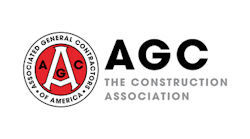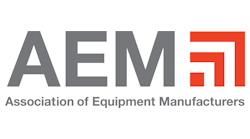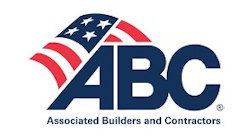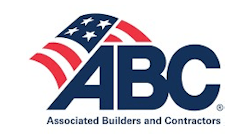The approval of the new lease accounting standard by the Financial Accounting Standards Board (FASB) after many years of anticipating its revision means construction companies can now move forward and prepare to adopt it. The new standard will not impact the ability of companies to acquire productive equipment to grow their businesses or to enjoy the benefits of financing. There are many reasons to lease equipment, and the primary reasons will remain intact under the new rules, from maintaining cash flow, to preserving capital, to obtaining flexible financial solutions, to avoiding obsolescence.
What’s Changing? What’s Not?
Many of the lease accounting changes are relatively neutral. The biggest change is that the new standard will change how operating leases are accounted for on corporate balance sheets. Instead of appearing as a table of future payments in the footnotes, they will appear on the balance sheet, but as a non-debt liability. The new rules have no impact on the income statement. There is a limited effect on debt covenants. The rules for classifying whether a new contract is a Capital (Finance) or an Operating lease are virtually the same as before under generally accepted accounting principles (GAAP). Finally, the capitalized asset cost with Operating Leases will be lower compared to a loan or cash purchase so it is still important that the lease be an Operating Lease even though it is capitalized.
Impacts for Construction Businesses
As you consider the lease accounting changes, you will want to understand what they mean to your business. For one, your credit rating should not change just because the FASB changed the rules for recording and capitalizing Operating Leases. Bank lenders and credit analysts already take into consideration the Operating Lease obligation included in your footnotes. They estimate the value of the implied asset and liability created by Operating Leases to adjust their measures and ratios used to make credit assessments. The proposed formula to capitalize operating leases under the new rules is substantially the same as the method used by rating agencies today.
The new rules will be implemented retroactively, so all Operating Leases (except for short-term leases) will need to be capitalized in the financials reported in the transition year. If comparative balance sheets and P&L statements are presented the Operating Leases must be capitalized in the earliest balance sheet. This means the impact may be sooner that you might realize.
Whether you need to recognize all leases on the balance sheet depends on the lease terms and conditions. If you are reporting under International Financial Reporting Standards
(IFRS)/US GAAP, the answer is yes. However, if the contract duration is equal to or less than 12 months, the off-balance-sheet approach previously used for Operating Leases applies. If the contract qualifies as a service, the contract does not have to be recognized on the balance sheet. For IFRS companies, the lease does not have to be recognized if the value of the asset is low—with a benchmark less than $5,000—irrespective of term. (NOTE: This is not the case under US GAAP.)
Leverage Opportunities From the Change
While change may seem inconvenient at first glance, reexamining and assessing business processes to accommodate the lease accounting changes could reap unexpected advantages. Better information and controls can help enable better tracking and asset management, avoid redundancies and allow you to negotiate better lease terms throughout the organization.
The Equipment Leasing and Finance Association (ELFA), its members, their customers and other stakeholders engaged constructively with the FASB in its mission to revise lease accounting rules in order to ensure a workable standard that accurately reflects the economics of the lease transaction and does not put undue burden on businesses or harm the US economy. For more information on the new lease accounting standard, please visit www.equipmentfinanceadvantage.org/newLAR.cfm.
Disclaimer: The information in this document is a summary only and does not constitute financial advice. Readers should obtain their own independent accounting advice that takes into account all relevant aspects of a particular lessor’s or lessee’s business and products.How Should You Prepare for the New Standard?
With the new standard scheduled to take effect in 2019 for public companies and a year later for private firms, now is the time to prepare. The following are five areas to address that will help make the lease accounting changes go smoothly for your business.
- Inventory equipment lease and rental contracts: Knowing the amounts and nature of all contractual obligations and terms of your leases will enable you to understand your company’s accounting and tracking needs.
- Identify IT/software requirements: To determine if the technology in place will meet the new standards, ask your accounting software vendor how they plan to support the changes.
- Review your debt covenants: Although the lease accounting changes will have limited effect on debt covenants, discuss fully any implications with your bank or creditors.
- Seek out industry expertise and counsel: In addition to getting accounting expertise, you’ll want to consult with your equipment finance provider. Providers have hands-on experience, informational resources, and advice on industry best practices to help you assess the possible impact of the changes on your current and future leasing needs.
- Enact a plan: With information you’ve gathered, you can start planning the budget and resources necessary for updates and systems changes to support the new rules.











